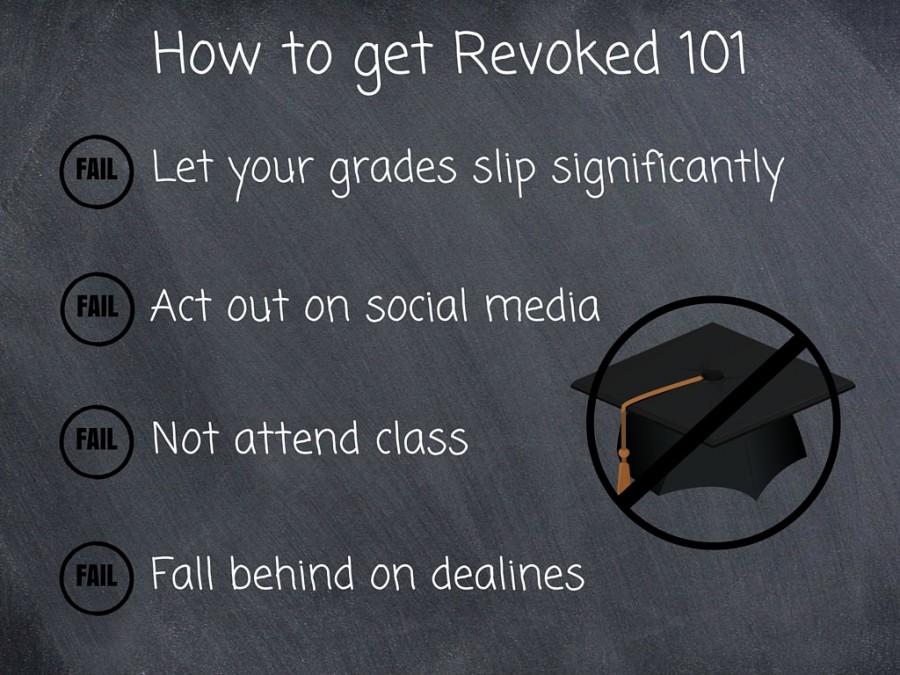It’s not over yet
After first semester ends, seniors still have work to do
As admittance letters from colleges appear in mailboxes, it’s easy for seniors to worry less about their second semester grades.
Teachers always talk about “senioritis” being dangerous, and many students ignore them anyway.
It makes sense: they’re already in college, so why does high school still matter?
“Colleges are looking for a strong finish,” college counselor Brad Kain said. “Students at the minimum should maintain the same grades that they have for the past four years.”
Finishing strong also means not taking blow-off classes, according to Mike Melinder, Senior Admissions Counselor at the University of Iowa.
“We also want to see students continue to take the same rigor of courses that they have been taking,” Melinder said.
Some universities crack down on poor performance second semester more than others, according to Kain.
If a student is an A and B student, receiving a D or C second semester looks different in the eyes of Yale than it does Illinois State, according to Melinder.
Kain says, however, that students should just strive to be consistent.
“If a student simply maintains their past performance, they will be fine,” Kain said.
Kain also says that it’s easy to get carried away, but the job is not done.
“The post-application process can be the most enjoyable time of a student’s high school career,” Kain said. “There is still plenty to learn in high school during senior year that will make the transition to college easier. The harder you work in high school, the easier college will be.”
Similarly, senior Nolan Cardona also says that slacking off senior year causes problems down the line.
“If a person slacks off in the final semester of senior year, they would be ending the year with terrible study habits leading to subpar grades,” Cardona said. “[T]hey would have to redevelop those study habits that they had for most of high school which could take a lot of time.”
A senior’s agenda also consists of the all-important final research paper that they complete in English class.
Although not a graduation requirement like in years past, it is worth a significant part a senior’s final grade, according to English teacher Catherine Ross-Cook.
Failure to complete this assignment would be catastrophic in the eyes of a university.
Another reason a college would revoke an applicant’s admittance is social media.
According to a Kaplan phone survey, which accounted for nearly 400 admissions officers, 31 percent of officers research some applicants’ Twitter and Facebook pages.
Thirty percent of officers said what they discovered negatively affected an applicant. This could also mean rescinding an applicant that has already been admitted, if it’s drastic enough.
Melinder emphasizes that in order to stay in the know, students should update themselves so they don’t fall behind.
“It is crucial that students pay attention to their email so that they are fully aware of deadlines and next steps in the process,” Melinder said. “Read your email. Read your email. Read your email.”


